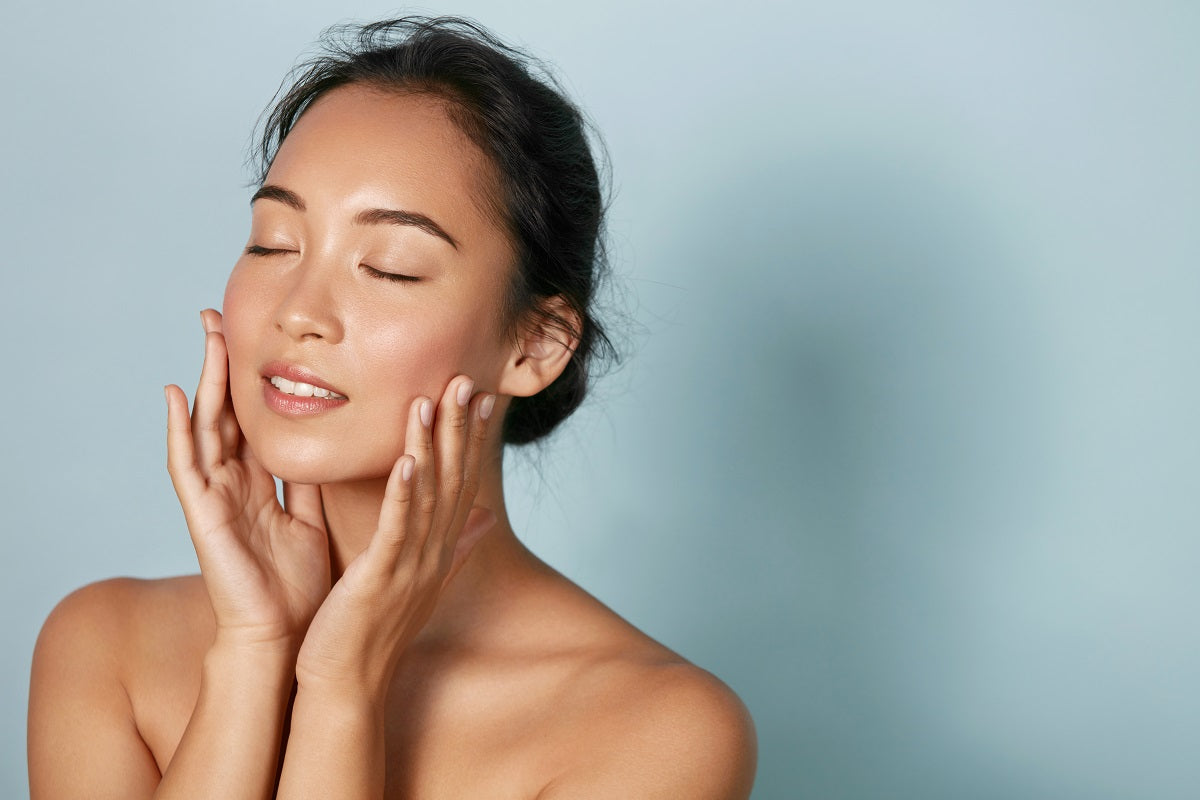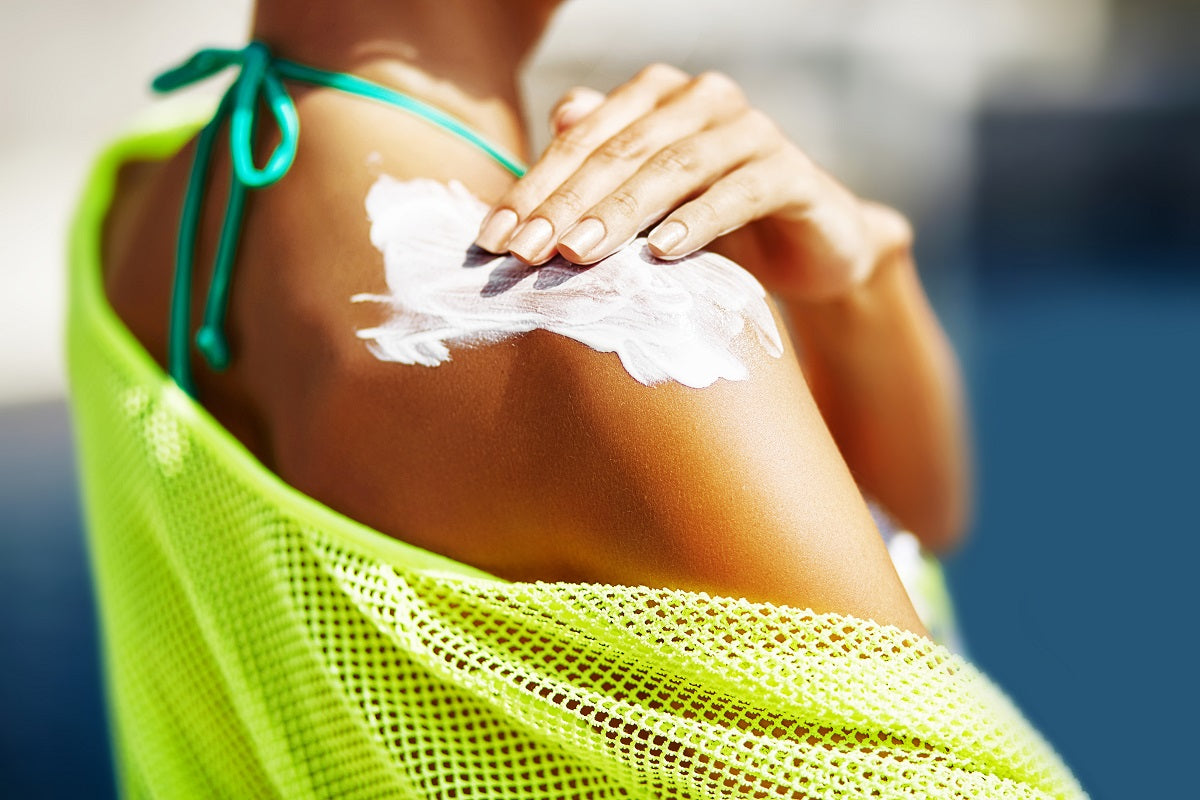
What Does Zinc Do for the Skin?
We’ve all struggled with our skin at some point. Acne, redness, uneven skin tone, dark spots — these pesky problems drive us nuts, can do serious damage to our self-confidence and can ruin the most stylish selfies.
The market is packed with products promising better skin. You’ve probably tried some of them, only to have the same problems rear their ugly head.
What if we told you the answer to fixing your skin is one simple mineral? Zinc benefits for the skin are endless and it has been proven to be beneficial to your skin and has a host of benefits. In this guide, we break down what zinc can do for your skin, and how using products with zinc and non-nano zinc oxide can change your skin for good.
What is Zinc?
When you think of “zinc,” you probably picture old photos of lifeguards with white triangles on their noses. That would certainly be accurate as zinc offers excellent protection for your skin against the sun’s dangerous rays.
In its natural state, zinc is a metal found in ores beneath the earth’s surface. It’s mined and used in several commercial applications. The main things we’re concerned with here, however, are skincare products, so we’ll focus on how zinc is used in those.
Skincare products utilize two different kinds of zinc. Zinc oxide and non-nano zinc oxide are widely used and, bonus—they’re beneficial for your skin, so let’s get more familiar with them:
- Zinc oxide – Zinc oxide for skin is the white, powdered form of zinc that’s used in many products. The FDA allows a concentration of up to 25% in skincare products such as sunscreens, lotions, and ointments. So what does zinc oxide do for your skin? It can help protect it from the sun’s rays and can expedite wound healing.
- Non-nano zinc oxide – Nano and non-nano terminology is used to describe the size of the zinc particles found in a product. Non-nano particles are larger and thus not small enough to penetrate your skin. There is a belief that this provides better protection against the sun without the potential risks of inhaling particles that might pose a problem for your lungs. While the impact of inhaling nanoparticles from powdered sunscreens is not yet clear, using a non-nano form of zinc oxide is believed to be completely safe.
How Does Zinc Affect Your Skin?
Now that you know what zinc is, let’s discuss zinc oxide for skin. We’ll break the impacts of zinc on your skin into the two most consequential effects: healing and prevention and answer: What does zinc do for the skin?
1. Healing
Zinc is an essential mineral that your body needs to function properly. One of the critical processes zinc performs is the promotion of healing. It has been proven to reduce inflammation and bacterial infection in wounds, and these same properties prove useful when treating problem skin conditions.
2. Acne Scars
Once you get rid of acne, you can still be plagued by the scars it leaves behind. The thought of them lingering forever is not something you want to contemplate and, thanks to zinc, you don’t have to.
Zinc oxide has been shown to help you get rid of acne. It’s believed that the anti-inflammatory properties it possesses help reduce the redness and irritation acne sufferers have. Then, over time, it may reduce the appearance of scars left behind by severe acne.
3. Redness
Acne isn’t the only skin inflammation zinc can help treat. If you have general redness or unevenness to your skin tone, the application of a zinc oxide product can make your skin tone appear more even. Zinc also reduces the itching and redness caused by more severe irritants such as eczema and psoriasis.
4. Dark Spots
Along with scarring, acne and other inflammatory skin conditions can leave behind dark spots especially if you have a medium to dark skin tone. The American Academy of Dermatology recommends using a sunscreen containing, you guessed it, zinc oxide, to fade these spots and prevent more from forming.
5. Prevention
Zinc’s other important job is prevention. The most commonly known preventative property of zinc is its ability to block the damaging rays of the sun. However, while this is certainly a wonderful ability, zinc can also prevent acne and the appearance of skin aging. Let’s take a quick peek at how zinc prevents acne, UV damage, and aging.
6. Acne Treatment
Does Zinc Help Acne? We’ve already discussed how zinc can heal acne scars with its anti-inflammatory abilities. However, the same abilities also prevent acne from returning. Zinc destroys the bacteria on your skin that contributes to acne blemishes and reduces oil production. When these two ingredients aren’t present, new blemishes are less likely to form.
7. UV Damage
Zinc’s ability to protect your skin from the sun is one of its most important features. When used properly, sunscreens containing zinc oxide can protect you from the three most common types of skin cancer:
- Squamous Cell Carcinoma
- Basal Cell Carcinoma
- Melanoma
Zinc oxide works at the skin level to block the sun’s harmful UVA and UVB rays from getting to the skin. You should certainly wear sunscreen every day to prevent potentially deadly damage.
8. Aging
Because it protects your skin from sun damage, zinc is one of your top weapons against aging skin. Skin that is protected from the sun shows fewer wrinkles, dark spots, and less redness. If you want to keep your youthful, dewy skin around, don’t skimp on sunscreen application.
What Happens if You Don’t Get Enough Zinc?
To further demonstrate how zinc is beneficial for your skin, let’s talk about what happens when your body doesn’t get enough. Zinc is essential for your overall health. You need to consume enough zinc in your food to keep your body running smoothly. Without it, you’ll find that wounds heal more slowly, your hair may begin to fall out, and you’ll have dry, rough, and itchy skin.
Typically, there are three ways in which humans can take in zinc. They are:
- Zinc from food – You need small amounts of zinc every day to maintain overall health. Remember, healthy skin starts on the inside. Without consuming foods containing zinc, your skin will suffer. Some excellent sources of zinc include meat, seafood, dairy products, legumes, nuts, and fortified cereals.
- Zinc supplementation in pill form – Oral zinc supplements are another way to get some benefits of zinc. Some oral acne medications contain zinc. Oral zinc supplements can also be taken to boost zinc levels in people who are zinc deficient.
- Zinc in skin care products – Now we get to our favorite topic: zinc in skin care products. As we’ve established, zinc oxide is an amazing weapon in the fight against acne (especially if you have acne-prone skin), scarring, dark spots, aging, and skin cancer. While you still need to consume foods containing zinc to keep your skin and body healthy from the inside, the benefits of adding topical zinc to your routine are proven.
Skincare Products Containing Zinc
So how do you use zinc on your skin to maximize the benefits? Several types of products can help your skin reap the rewards of zinc. Some of our favorite types of zinc-infused skin care include:
- Detoxifying body care – Cleansers and masks infused with zinc-rich ingredients are the perfect start to your skincare routine. They’ll help remove excess bacteria and oils on the surface of your skin. The zinc in these products will also give you an anti-aging boost and will get the repairs of damaged skin cells started.
- Skin creams – Avoid thick, sticky creams and lotions and, instead, use a light moisturizer that contains zinc-filled ingredients to help prevent breakouts, limit oil production, and even out your skin tone. Many products contain a slew of additives that can irritate sensitive skin, so be careful to choose those that use safe, natural ingredients.
- Sunscreen – You should use sunscreen for your face and body that contains zinc every day to protect your skin from UV damage. As we’ve covered here, zinc is your number-one choice in the battle against skin cancer and sun damage. When you choose sunscreen that won’t make your skin feel greasy, you’re far more likely to use it daily. Lightweight zinc sunscreens give you the best protection without the pitfalls of heavier lotions.
Averr Aglow for Your Best Skin
If you’re ready to reveal beautiful skin, Averr Aglow can help. We have the highest quality acne skincare and anti-aging skincare products made from simple ingredients like zinc to nourish and heal your skin. From healing to prevention, we’ve got you covered. Our body polish, cream, and sunscreen are all designed to provide your skin with the ultimate in care and comfort.
Don’t hesitate. Take our quiz today to find the best skincare routine for you and get ready to start posting those filter-free photos of skin you can be proud of.
What to Do Next? Try Averr Aglow’s Clear Skin Kit
Tired of feeling lost and confused about what you should do to get clear, smooth skin? Order the Clear Skin Kit.
The Clear Skin Kit contains products specially crafted with the perfect blend of natural ingredients that help soothe and calm red, irritated skin while also clearing up breakouts. If you struggle with sensitive acne/breakout-prone skin, hormonal acne, cystic acne, or rosacea, then you’ll be happy you found this complete routine.
Please understand, that results may vary, we’re not selling you a miracle product and would never try to position or state that you will get a true result in only a few days. In our clinical trials, most users found the most results at the 30-day and then the 56-day mark by sticking with our routine.
What is Averr Aglow®?
Averr means Truth. We have pioneered a revolutionary no-rinse cleansing routine specifically tailored to address problematic skin issues.
Hi, I’m Camille, founder of Averr Aglow, and I help adult women who are battling breakouts and acne get clear skin results like they have never seen before, even if nothing has worked for them in the past.
After battling breakouts for over 16 years, trying every skincare product under the sun, and visiting countless professionals like dermatologists, nutritionists, and hormonal doctors, I finally learned why nothing seemed to work on clearing up my skin, what truly causes breakouts and acne, and EXACTLY what to do to get clear skin results – and I want to help you do the same.
Let me help you! Read my full testimonial here.







